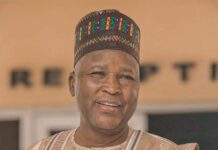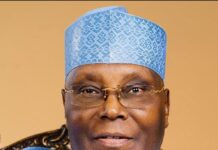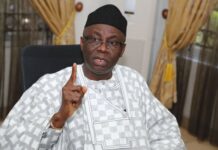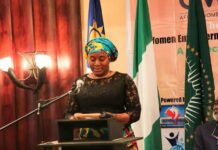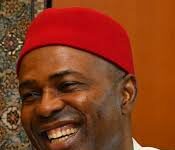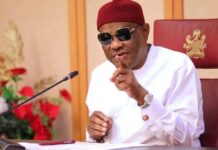Atiku’s Appeal: Supreme Court Conceals Panel Members Till the ‘Last Minute’
POLITICS DIGEST – Supreme Court has resolved to keep a lid on the members of the panel who will hear the appeal filed by the Peoples Democratic Party (PDP) and its presidential candidate, Atiku Abubakar, challenging the verdict of the Presidential Election Petition Tribunal (PEPT), which upheld the election of President Muhammadu Buhari.
The appeal is scheduled for hearing on Wednesday.
The appellants had approached the court shortly after the September 11 verdict with 66 reasons why the apex court should upturn the tribunal’s decision. The five-man panel had in its lead judgment delivered by its chairman, Justice Mohammed Garba, held that the petitioners failed to prove their allegations against Buhari and subsequently dismissed the petitions for being incompetent and lacking in merit.
The countdown to the appeal has however been shadowed by public interest in who the members would be and when they would be unveiled.But a source close to the apex court yesterday told The Guardian that the composition of the panel would remain shrouded in mystery. According to the insider, not even the members of the panel would have the faintest whiff of their involvement, as the Chief Justice of Nigeria, Ibrahim Tanko Muhammad, has vowed to mask all details “until the 11th hour.”
Bothered by the silence, the Coalition of United Political Parties (CUPP) yesterday regretted that over 45 days after the tribunal’s verdict, the Supreme Court is yet to constitute the appeal panel.“The development is very worrisome to the opposition political parties, as critical stakeholders in the nation’s democracy,” the CUPP said in a statement by its spokesperson, Ikenga Imo Ugochinyere.
“The CUPP calls on well-meaning Nigerians and lovers of democracy to prevail on the Supreme Court to do the needful on this matter before it is too late, by ensuring that the integrity and public confidence in the apex court is not destroyed.“We insist that we shall declare a total lack of confidence in any panel constituted in violation of the age-long order of seniority. The apex court must be ready to be on the side of the people in saving this nation and its democracy.”
Read Also:
Atiku and PDP in their 95-page appeal are urging the Supreme Court to set aside all the decisions of the tribunal, saying it erred in reaching the conclusion that the petitioners failed to prove their case against the respondents.The petitioners had hinged their case on the allegation that Buhari lied on oath on his Form CF001, which he submitted to the Independent National Electoral Commission (INEC), seeking clearance to contest the position of president in the election.
With INEC, Buhari and the All Progressives Congress (APC) as respondents, other allegations in the petition included election irregularities and substantial non-compliance with the Electoral Act and guidelines during the elections.
But the tribunal ruled that Buhari was “eminently qualified” to contest the poll.In the appeal therefore, the petitioners held that the panel erred in law by stating that Buhari was eligible. They also accused the panel of defending Buhari.
In ground one of the appeal, Atiku and PDP held that the tribunal erred in law when it relied on “overall interest of justice” to hold that Buhari’s documents were properly admitted in evidence. They noted that the documents, which bordered on his certificates, were not pleaded and were not front-loaded.
The appellant, on ground two, challenged the part of the ruling, which held that Buhari does not need to attach his certificates to his Form CF 001. They submitted that the tribunal gave restrictive interpretation to Section 76 of the Electoral Act 2010 (as amended) to exclude Form CF001 from its provisions.
“The conduct of election by the first respondent starts with the screening of candidates. No candidate can be screened unless he completes Form CF001 (Exhibit P1). In Form CF001, under the column for ‘Schools Attended/Educational Qualification with dates’, there is the clear provision for attaching evidence of all educational qualifications.”
The appellants said: “Certificates are evidence of educational qualifications.” They went further to accuse the tribunal of attaching evidential value to the military statement on Buhari’s certificate. Thus making a case for him after rejecting the same document for lack of probative value.They maintained that the crucial issue in their case was that the purported claim by Buhari that his “Primary School Leaving Certificate, WASC and Officer Cadet” are
with the Secretary of the Military Board is false.
The appellants also faulted the tribunal on the variation in the name of Buhari, asking whether Mohammed, Muhammed or Muhammadu referred to one and the same person. They argued that Buhari neither claimed in his pleadings nor showed evidence that at any time, he was known as “Mohammed Buhari.”








